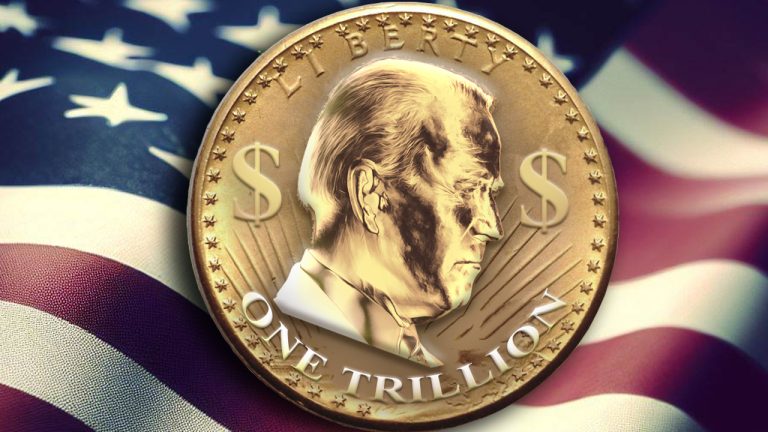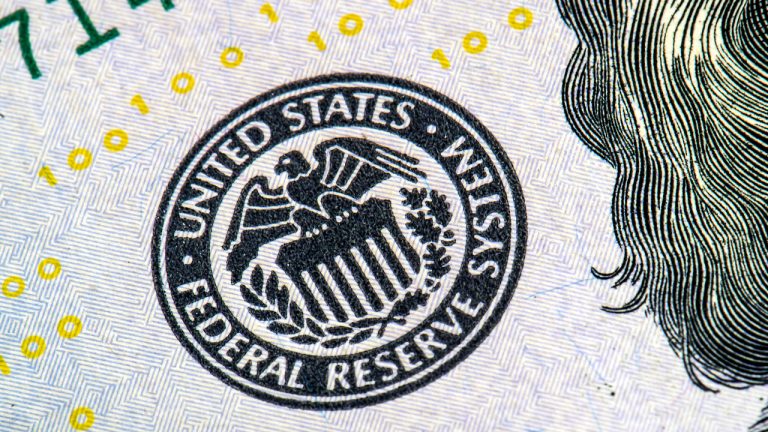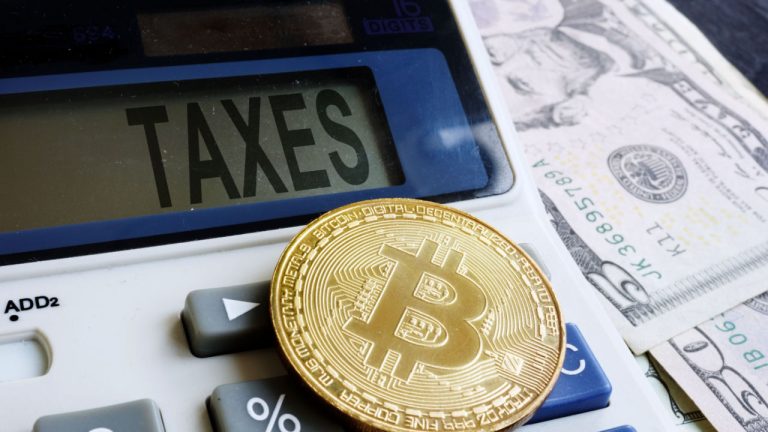
The U.S. government is sanctioning another crypto mixing protocol, accusing it of aiding North Korea in laundering hundreds of millions of dollars worth of stolen digital assets. In a new press release, the U.S. Department of the Treasury says that its Office of Foreign Assets Control (OFAC) is sanctioning the crypto tumbler Sinbad for allegedly […]
The post U.S. Government Enacts Sanctions on Crypto Mixer Sinbad Under Allegations of Aiding North Korean Money Laundering appeared first on The Daily Hodl.

The U.S. Department of the Treasury and the Internal Revenue Service (IRS) are jointly proposing new tax regulations for the digital assets industry. In a new publication, the Treasury and the IRS are proposing that payment platforms, wallet providers and trading firms that deal with crypto assets file tax returns on certain sales or exchange […]
The post U.S. Treasury and Internal Revenue Service Publish New Proposed Crypto Tax Regulations appeared first on The Daily Hodl.

A new US law requiring citizens to report crypto payments worth more than $10,000 is primed to take effect in January after a legal challenge to the requirement was swatted down in court last week. The legal challenge began last year when the crypto advocacy group Coin Center and a handful of other plaintiffs sued […]
The post New Law Requiring US Citizens To Report Crypto Payments Worth $10,000 Coming Soon: Coin Center appeared first on The Daily Hodl.

U.S. Treasury official Graham Steele told an audience at a Texas payments conference that a future CBDC in America should consider anonymity.
Privacy and the ability to transact anonymously should be considerations in the design of a digital dollar, a United States Treasury official has said.
On June 13 the Treasury Department’s Assistant Secretary for Financial Institutions Graham Steele spoke at a payments-focused conference in Texas about the Federal Reserve’s controversial FedNow system and central bank digital currencies (CBDCs).
Steele said one challenge of a retail CBDC is minimizing illegal transactions while maintaining user privacy. He said considerations should still be made about how to protect user anonymity:
“It is important that we consider the extent to which privacy and anonymity might be preserved and explore the technologies and methods available, including Privacy Enhancing Technologies, to enable such protections in the design of any potential retail CBDC.”
In his remarks, Steele weighed the benefits and risks of a possible CBDC saying it could promote a “competitive payment environment.”
On the other hand, a retail CBDC would be directly backed by the Fed and could provide a safer option for consumers during bank runs which could “destabilize private sector lending” according to Steele.
He pointed to the recent banking crisis and said the “access to non-deposit alternatives outside of the banking system may have changed the nature and speed of bank runs.”
He added the U.S. “has not yet determined whether it will pursue a CBDC” but a Treasury-led group is evaluating the implications of a potential CBDC in the country.
Steele said the evaluation includes looking over “policy objectives related to global financial leadership, national security, and privacy, illicit finance and financial inclusion.”
Related: 7 central banks and BIS continue examination of ongoing policy issues for retail CBDC
On the Fed’s FedNow instant payments system, Steele thinks having multiple options for payment operations “promotes choice and competition in payments” which he believes will encourage the “development of new payment services and features” along with enhancing payments system resilience.
FedNow has witnessed political pushback. Presidential hopefuls Robert F. Kennedy Jr. and Ron DeSantis are against the system claiming it would pave the way for a CBDC which both claim will hand the government too much control.
In April, Federal Reserve Board governor Michelle Bowman said it was "difficult to imagine" that a CBDC could be justified beyond use in "interbank and wholesale transactions."
Magazine: Tornado Cash 2.0 — The race to build safe and legal coin mixers

Two US congressmen are calling on the Internal Revenue Service (IRS) to speed up efforts to ensure cryptocurrency users are complying with tax rules. In a new letter, Rep. Brad Sherman of California and Rep. Stephen Lynch of Massachusetts blame the crypto industry for a major source of tax evasion. The letter, sent to Treasury […]
The post Congressmen From California and Massachusetts Ask IRS To Get Control of Crypto Tax Evaders appeared first on The Daily Hodl.
 As the United States stares down the barrel of a potential debt default come June, a curious and intriguing solution has emerged: crafting a single $1 trillion platinum coin. This unusual tactic exploits a legal loophole that allows the Treasury Department to mint platinum coins of any value. By delivering such a coin to the […]
As the United States stares down the barrel of a potential debt default come June, a curious and intriguing solution has emerged: crafting a single $1 trillion platinum coin. This unusual tactic exploits a legal loophole that allows the Treasury Department to mint platinum coins of any value. By delivering such a coin to the […]
The current deposit insurance cap under the FDIC is $250,000, but recent banking collapses have seen calls to increase that amount.
U.S. officials are reportedly studying ways to expand the current scope of deposit insurance that would guarantee all U.S. bank deposits should the current banking crisis worsen.
The current deposit insurance cap under the Federal Deposit Insurance Corporation stands at $250,000, however, following the collapse of several banks in March, there have been calls to increase that amount.
Organizations such as the Mid-Size Bank Coalition of America called on March 18 for the cap to be lifted for the next two years, citing a need to protect depositors and to stop capital being pulled from smaller banks for supposedly safer-looking heavyweights.
According to a March 21 Bloomberg report citing “people with knowledge of the talks,” Treasury Department staff members are currently discussing the possibility of the FDIC being able to expand the current deposit insurance beyond the max cap to cover all deposits. According to the FDIC, domestic U.S. bank deposits totaled $17.7 trillion as of December 31.
After some intense "studying" they realised that they needed $17 trillion to guarantee all bank deposits. pic.twitter.com/Z15HLiBp23
— Coin Bureau (@coinbureau) March 21, 2023
The move would ultimately hinge on what level of emergency authority federal regulators have and if the insurance cap can be increased without formal consent from Congress.
Bloomberg’s sources indicated, however, that U.S. authorities don’t deem such a drastic move necessary at the moment, as recent steps taken by financial regulators are likely to be sufficient.
As such, they stated that a potential strategy is being whipped up just in case the current situation gets worse.
The US Govt says it studies ways to guarantee all bank deposits if the banking crisis grows.
— Kim Dotcom (@KimDotcom) March 21, 2023
They say that because they know that the banking crisis will grow?
They don’t have the $18 trillion required to protect depositors.#RunOnTheBank while you can.
Gold, Silver, Crypto.
In response to Silvergate, Signature Bank and Silicon Valley Bank going bust in recent weeks, the Federal Reserve rolled out the $25 billion Bank Term Funding Program (BTFP) on March 13, as the government pushed to stem any further contagion.
Related: UBS Group agrees to $3.25B ‘emergency rescue’ of Credit Suisse
Meanwhile, in a March 20 press briefing, White House Press Secretary Karine Jean-Pierre was specifically asked if the federal government was supportive of a push from small- and mid-size banks to expand FDIC insurance beyond $250,000.
But Jean-Pierrre was tight-lipped on the Biden Administration’s view, saying on that “our goal is to ensure the financial system is stable” and emphasizing that creating a fair playing field was the “focus of Treasury and the bank regulators.”
“And as you saw, due to our actions this week at the direction of the President, Americans should be confident of their deposits. We’ll be there when they — when they need them.”
“And — and so, again, that’s what our focus is going to be. We don’t have any new announcements at this time. But clearly, we want to make sure that our financial system is stable,” she added.
 On Sunday, the New York Department of Financial Services, or DFS, announced that it had taken possession of Signature Bank. The DFS appointed the Federal Deposit Insurance Corporation, or FDIC, as the receiver of the bank. In a joint statement, the U.S. Federal Reserve, Treasury Department, and FDIC explained that all Signature depositors would be […]
On Sunday, the New York Department of Financial Services, or DFS, announced that it had taken possession of Signature Bank. The DFS appointed the Federal Deposit Insurance Corporation, or FDIC, as the receiver of the bank. In a joint statement, the U.S. Federal Reserve, Treasury Department, and FDIC explained that all Signature depositors would be […] The enforcement of a requirement for brokers to report gains made by crypto investors has been postponed by the U.S. Treasury Department and the IRS. The new tax rules, incorporated into the $1 trillion infrastructure bill passed by the U.S. Congress in 2021, were to be imposed in 2023. Crypto Brokers Told to Comply With […]
The enforcement of a requirement for brokers to report gains made by crypto investors has been postponed by the U.S. Treasury Department and the IRS. The new tax rules, incorporated into the $1 trillion infrastructure bill passed by the U.S. Congress in 2021, were to be imposed in 2023. Crypto Brokers Told to Comply With […]
Tornado Cash contributes to our national security interests more than it undermines them.
One of the most powerful moments in a new crypto user’s journey happens the first time they send a sizable amount of money to their private wallet. It’s an awe-inspiring, serious moment — and it’s a little scary to experience the power and personal responsibility of the technology firsthand with your own real money.
A second powerful moment occurs when the same user is introduced to a block explorer, looks up their address and sees that same transaction there on the blockchain for all to see.
There are competing visions of what Bitcoin (BTC), Ether (ETH) and other cryptocurrencies will achieve. They may be the future of gold, payments, currency or bank accounts. But no matter your crypto vision, none can work without achieving the same level of privacy enjoyed by cash or, at a minimum, credit cards. While credit card companies conduct unparalleled surveillance on our financial life, at least our transactions are not viewable on a public ledger.
There are a number of tools to achieve privacy available in crypto, from privacy coins to mixers and conjoining transactions on the Bitcoin blockchain. These tools are used by everyday users, and in some cases, they are used by bad actors — just like cash. Or to be more precise, crypto and crypto privacy tools are used by criminals with less frequency than cash.
Crypto is safer than fiat.
— CZ Binance (@cz_binance) May 6, 2022
Chainalysis: Transactions involving illicit addresses represented just 0.15% of cryptocurrency transaction volume in 2021.
United Nations: estimated money laundered globally in one year is 2-5% of global GDP, or $800B - $2 trillion in USD.
Sources
The United States Treasury Department’s Office of Foreign Assets Control sanctioned one particular project, Tornado Cash, that was the most effective privacy tool on Ethereum. Much has been written about the sanction and the threat represented by sanctioning code as speech, and two lawsuits have been filed to push back against OFAC’s efforts.
What has been lost in the FTX drama over the last few weeks is the deft maneuvering that OFAC has engaged in to improve its strategic position in the litigation. On Nov. 8, OFAC “redesignated” Tornado Cash “on the basis of new information.”
Two significant legal challenges brought forward a few weeks prior that poked holes in OFAC’s designation are the likely source of the “new information.” OFAC can only sanction groups, not computer code, and OFAC seems to be pushing a novel theory in its second designation that the decentralized autonomous organization around Tornado Cash was part of a group, even though the DAO had no power to change the code since the admin key was burned.
Supporters of the designation argue it was overall a fair trade to achieve national security goals. The stated reason for the designation was that Tornado Cash “obfuscated the movement of over $455 million stolen in March 2022” by North Korean hackers.
But did it really? Privacy tools require a large anonymity set to work. That’s the only way that small transactions by ordinary users can hide in a large crowd. And it works only if privacy tools are used correctly, without privacy mistakes like making mirror transfers into and out of shielded assets within a short timeframe.
Related: My story of telling the SEC ‘I told you so’ on FTX
Consider that when North Korean hackers made that specific transfer, it represented 20% of the entire Tornado Cash pool. The sheer volume of ETH North Korea was trying to move through the Tornado Cash protocol meant that it wasn’t obtaining any meaningful privacy by using the tool. It evokes a comical vision of Godzilla trying to cover himself with a fig leaf.
The Treasury Department would have achieved more for national security by allowing North Korean hackers to maintain a false sense of confidence and continue using the tool while it surveilled their transactions using statistical tracing analysis. What OFAC achieved instead amounts to little more than national security theater.
Meanwhile, it has done real harm to the Ethereum blockchain. One example, as noted by Ethereum co-founder Vitalik Buterin, is that Tornado Cash anonymized donations to support Ukraine. If the Treasury Department’s sanction against Tornado Cash is allowed to stand, it can sanction anything from computer code and applications to specific assets.
Related: Coinbase is fighting back as the SEC closes in on Tornado Cash
Almost as if on cue, former Treasury official Juan Zarate argued in a recent interview that the Treasury Department should use the Patriot Act more “creatively” to sanction entire classes of assets in crypto. It’s a short step from there to sanctioning gold coins or other everyday assets.
Society doesn’t countenance the sanctioning of things merely because criminals happen to use them. Criminals drive on roads. They use tools available at the hardware store. They use these things in furtherance of their crimes.
If OFAC’s vague sanction of “Tornado Cash” is allowed to stand, it can sanction any protocol or asset in crypto. And that threatens to destroy any meaningful vision of crypto’s future.
This article is for general information purposes and is not intended to be and should not be taken as legal or investment advice. The views, thoughts and opinions expressed here are the author’s alone and do not necessarily reflect or represent the views and opinions of Cointelegraph.